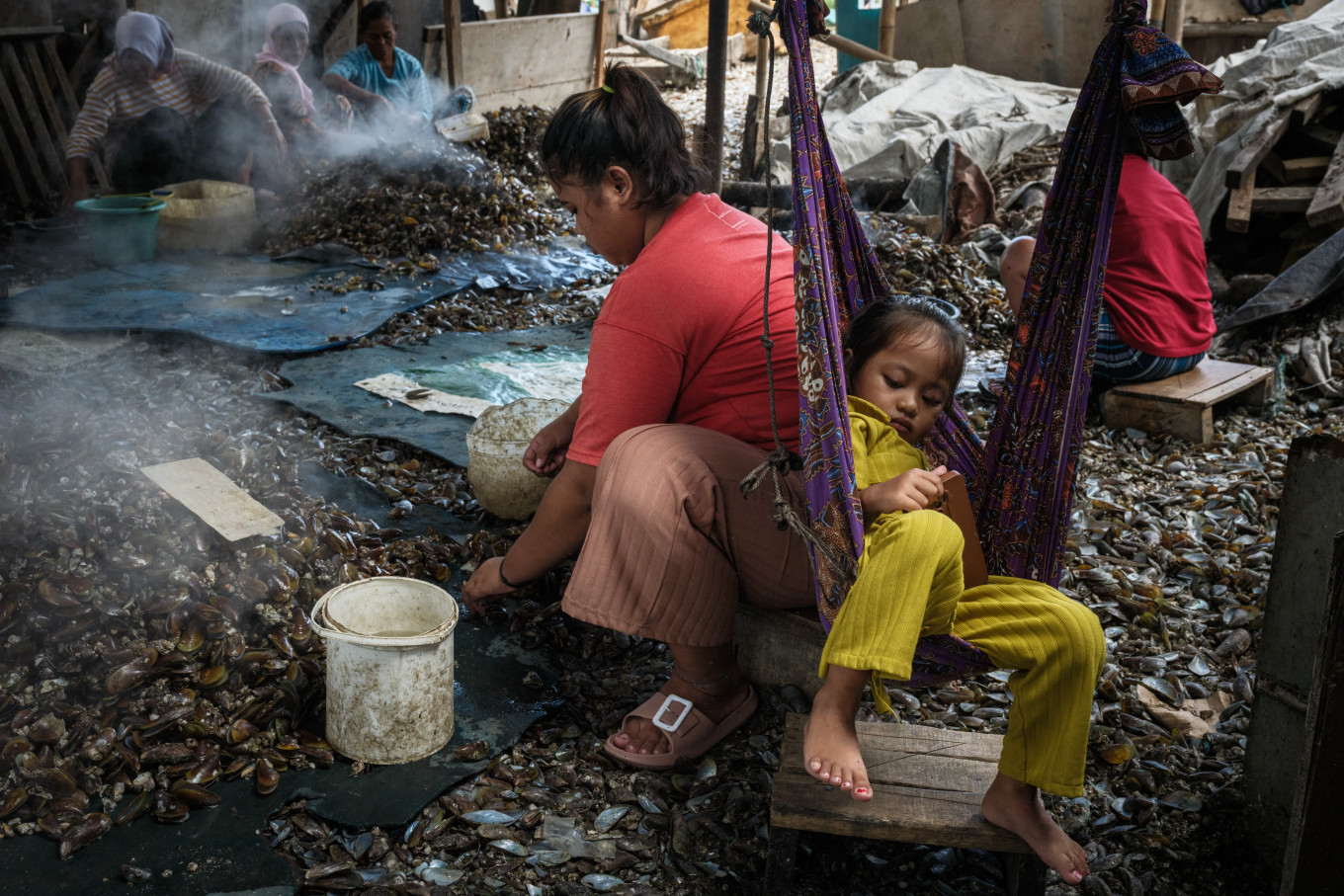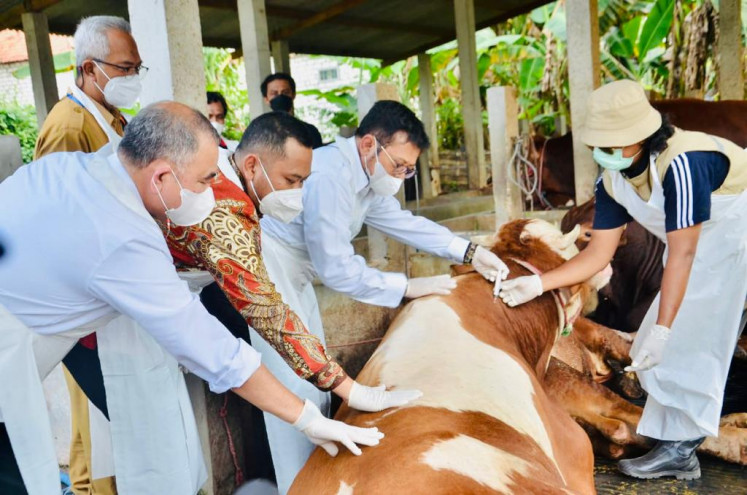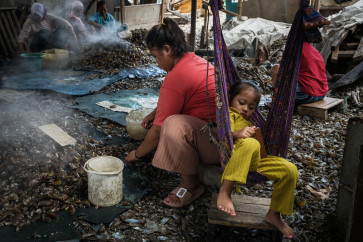Popular Reads
Top Results
Can't find what you're looking for?
View all search resultsPopular Reads
Top Results
Can't find what you're looking for?
View all search resultsCoastal communities face greater risk of microplastics
As the world's second-largest plastic polluter, Indonesia has topped the global per capita intake of microplastics that are found mostly in seafood, studies suggest, with fishermen and coastal communities being the most affected.
Change text size
Gift Premium Articles
to Anyone
A
s the world's second-largest plastic polluter, Indonesia has topped the global per capita intake of microplastics that are found mostly in seafood, studies suggest, with fishermen and coastal communities being the most affected.
However, the communities know very little about the potential health risks haunting them and continue to consume fish as part of their daily diet, prompting experts to urge immediate action from the relevant authorities to minimize the impact, including imposing stricter regulations on single-use plastics.
Microplastics, often invisible to the naked eye, are particles smaller than five millimeters and usually come from larger plastic pieces that have degraded over time. As these plastic fragments can end up in ecosystems if not managed properly, microplastics can either be ingested or inhaled by humans.
In recent years, many scientists have discovered microplastics in the human body, including in the lungs, breast milk, placental tissue and the bloodstream. While research on the long-term impacts is yet to be conclusive, some recent studies suggest that people who have microplastics identified in their bodies are more likely to experience heart attacks, strokes and death from any cause.
A recent study conducted by researchers from Cornell University in New York, moreover, notes that Indonesia has topped the global per capita intake of microplastics from 109 countries mapped.
The study, which was published in April in the Environmental Science and Technology journal, finds Indonesians consume 15 grams of microplastics monthly, a 59-fold increase from 1990 to 2018.
Read also: Microplastics have entered our bodies via food chain: Scientist



















